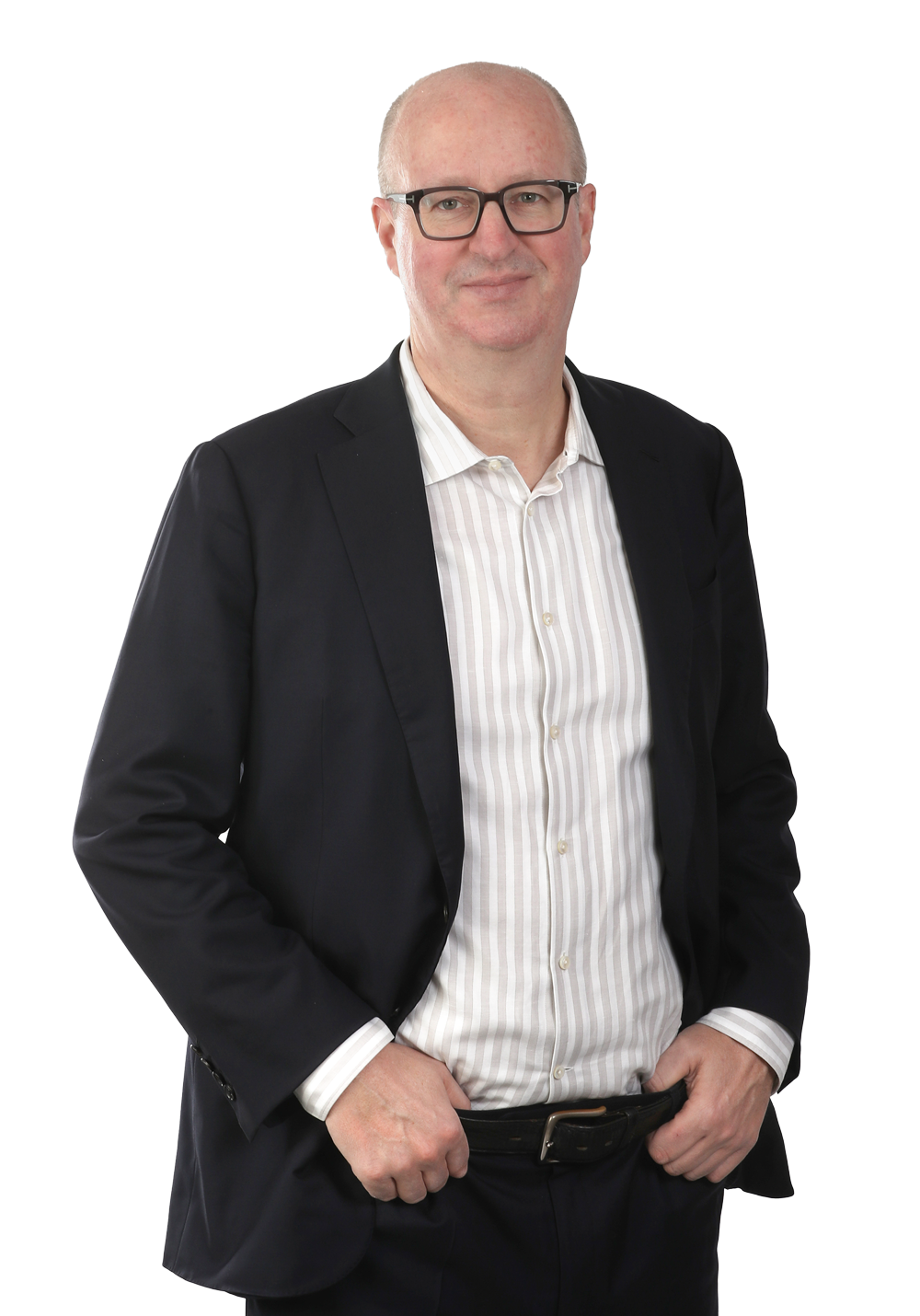Mr. Martin Schneider is the Chairman & CEO of Brainforce AG. Brainforce is a global management consultancy company headquartered in Switzerland providing senior interim managers to clients to sort out problems and implement solutions.
Mr. Schneider is invited to share his opinions from his observations and experience on today’s China and SEA region.

Interview
Gerald Neumann: Dear Mr. Schneider, thank you for sparing your time to take this interview. As a frequent traveler across Asia, which countries do you find most appealing from investment perspective?
Mr. Schneider: Mr. Neumann, it is a pleasure to share with you my experiences and observations. I have been working with China and many South East Asian Countries for the past 28 years, at both the industrial, and the interim executive management services provider side. To your question: China, due to its gigantic market size and growth situation has been the winner for foreign direct investments in Asia for the past at least three decades. However, the situation is changing, and diversification is of essence. ASEAN countries offer alternatives. For the upcoming decade, I would consider Thailand to be continue to be one of the most stable and business-friendly country to invest in, followed by the Philippines as a “newcomer”.
Gerald Neumann: China’s economic growth seems to be slowing down compared to previous years, despite its massive market and accountable workforce. To reboot the foreign capital inflow, the Chinese government has recently initiated some favorable measures, including a bold move to grant visa-free entry for short-term visitors from six countries (incl. Germany). How do you see the economic fundamentals and the recent business climate in China, and its impact to foreign companies?
Mr. Schneider: For this question, I look at three aspects: Firstly, China’s absolute GDP has grown to one of the largest economies in the world. Mature Markets typically generate GDP growth rates in the 2-4%/year range “only”. China will follow the macroeconomic reality. Secondly, China’s population starts to shrink and is dramatically aging at the same time. The infrastructure in place serves its current population of 1.4 billion already well. The real estate market has grown to a serious bubble. A recent global research study projects China’s population to shrink to some 750-900 million by year 2100. “China’s universities produce millions of graduates each year, but many cannot get a decent job and end up unemployed or become production line workers”, wrote the South China Morning Post recently. Therefore, China may face a lasting overall consumer weakness, even if the share of the middle class will continue to grow. Thirdly, the “China First” policy favors the substitution of foreign brands by local ones, even if those original brand products are produced in China. In consequence, the accessible market size will shrink for many foreign products.
Gerald Neumann: Despite of the sound premiums paid to expatriates, the multinational companies are still experiencing high turnover and a shortage of expatriate managers and engineers working in China. Do you have made similar observations with your clients? Can the local managers make up for the shortage to some extent?
Mr. Schneider: From my observations, the premiums paid to expatriates have been decreasing continuously. Along with the substantially increased cost of living especially in recent years, China is not so attractive anymore for foreign executives. The living conditions for foreigners have worsened also in other aspects: (1) Westerners feel uncomfortable with the higher surveillance of people’s activities and imposed internet restrictions. Also, the negative State propaganda on Western political and economic systems, cooled down the local Chinese interest in foreigners. We have seen many foreign executives leaving China to South East Asia or other emerging markets, particularly since the pandemic. The vacancies have been filled mainly with local managers. I observe an increasing disconnect between Chinese subsidiaries and European headquarters. Maybe this is one reason why there is an increase in compliance cases which has been creating more opportunities for our interim executives in China.
Gerald Neumann: Will you consider sending an interim manager from your company to work for a limited time at a client subsidiary company in Asia? What is the alternative?
Mr. Schneider: We have seen a fundamental shift from “flying-in” interim executives from abroad to deploying local interim executives. Reasons for this include the challenges for work permits and cost saving. There are a sufficient number of very suitable local senior interim executives that can take over a managing function on a consultancy contract basis within days. In contrast to a permanent executive hire, an interim executive deployment can be an excellent complimentary solution as he/she is immediately available. Considering seniority, experience and high flexibility in workload and duration, make it an overall cost-effective solution. Last but not least, such a solution is particularly suitable if there are compliance issues to resolve, due to the contractual set-up, allowing for appropriate, unbiased managerial actions in the company.
Gerald Neumann: With your years of experience doing business in China, do you feel a strong impact from the political landscape in China today? Which industries, respectively products do you think have been most affected by the political changes in recent years?
Mr. Schneider: The current political landscape in China put an end to the “gold digger rush” of the past 30+ years. China has never been easy to deal with, but most companies had too high benefit expectations from the China boom. While many companies have been successful, many others have not earned an adequate risk premium during the boom years. The overly rigorous government measures during pandemic messed up supply chains globally and lowered the confidence in China’s economic policy. Western companies have become cautious and started to adjust their China strategy.
I believe that the political changes are affecting particularly industries with (1) traditional products which have local alternatives already, (2) products which are mainly sold through Chinese public tenders, (3) and products which were produced in China mainly for low-cost reasons (“extended workbench”).
Gerald Neumann: As more and more multinationals adopting a China plus One strategy to diversify their investments by entering/moving into SEA countries, do you also observe similar phenomenon for companies from German speaking countries? Do you consider it a necessary move?
Mr. Schneider: The pandemic was an eye-opener for companies globally. It was too risky to put all eggs into one basket, i.e. to build a China-focused supply chain and market strategy The multinationals have been taking action already, Apple being a prominent example. Talking to our mid-cap and SME clients from German speaking countries, most of them are working on similar strategic adjustments. The level of strategic adjustments will correlate with the development of geopolitical tensions and ideology prioritization in China. Therefore, it is wise to diversify supply chain and markets to be better prepared for challenging times.
Gerald Neumann: Which specific country in the SEA region (e.g. Thailand, Vietnam, Malaysia, Singapore, etc.) do you consider most suitable for mid-cap companies from German speaking countries? Any specific reasons?
Mr. Schneider: Overall, Thailand, and the Philippines as a “newcomer”, are my favorites for mid-cap, resp. SME companies from German speaking countries. Vietnam, Malaysia and Singapore may be a choice also, depending on the preferences of evaluation factors and the special company case. I generally look at the following key factors: (1) the ease-of-doing-business, (2) the ease of logistics, i.e. importing/exporting goods and money, (3) an open local market access, (4) a stable, business-driven political system with a liberal economic policy, (5) the availability of skilled labor at reasonable cost (engineering, production, quality, etc.), (6) local English language skills for business and in daily life, (7) value-for-money of goods and services locally, (8) the level of IP-protection, resp. its enforcement, and (9) the standard of living as a foreigner at reasonable cost. Thailand has one of the best track records for these factors among emerging markets in Asia, and this for more than half a century. More recently, mid-cap companies may also look at the Philippines which went somewhat forgotten during the past 40+ years. A remarkable policy shift away from a China focused policy has happened recently there, supported by a strong democratic legitimation. American, European; Japanese and Korean companies are highly welcomed. This will open new business opportunities for especially SMEs and mid-caps from Germany, Switzerland and Austria.
Gerald Neumann: Mr. Schneider, thank you again for your time with us and the valuable input. Have a nice day!
How can we help you?
Dr. Gerald Neumann
Partner

